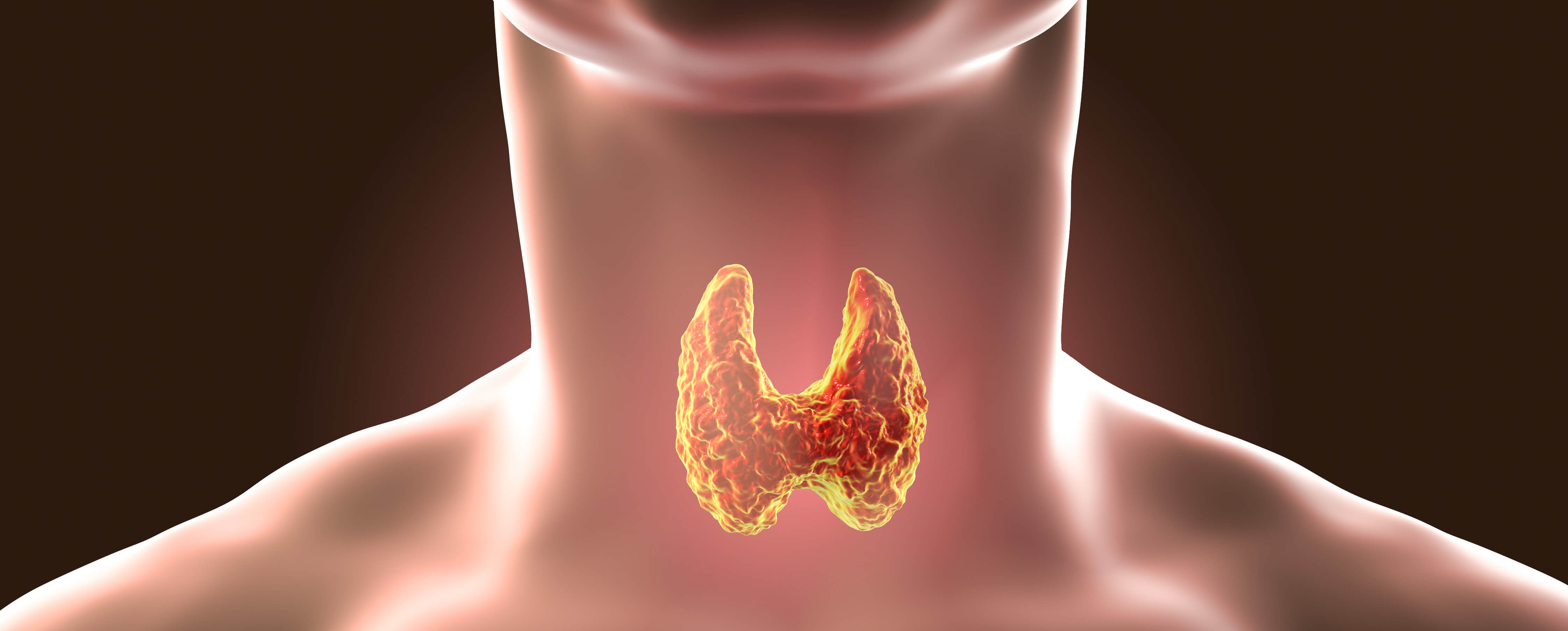A 67-year-old lady presents to the Emergency Department anxious, confused and agitated. She has also vomited several times. She has recently been started on a course of amoxicillin for a presumed chest infection by her GP. You are unable to take a coherent history from her, but she has her regular medications with her, which include aspirin, simvastatin and carbimazole. She has a friend with her who states she stopped taking her medications a few days ago. Her observation are: temperature 38.9°C, HR 138, RR 23, BP 173/96, SaO2 97% on air.
1. What is the most likely diagnosis?
Show Answer
This patient is suffering from a thyrotoxic crisis (Thyroid storm).
Thyroid storm is a relatively rare diagnosis, occurring in 1-2% of patients with established hyperthyroidism. It is an important diagnosis not to miss, however, because of the high mortality rate associated with it (approximately 10%).
Thyrotoxic crisis classically occurs in patients with underlying Graves’ disease or toxic multinodular goitre. Often, there is sudden onset of severe hyperthyroidism with:
- Hyperpyrexia (over 41°C), dehydration.
- Heart rate greater than 140 beats per minute (with or without atrial fibrillation or other arrhythmias), hypotension, atrial dysrhythmias, congestive heart failure.
- Nausea, jaundice, vomiting, diarrhoea, abdominal pain.
- Confusion, agitation, delirium, psychosis, seizures or coma.
2. What has precipitated this condition in this case?
Show Answer
In this case it would appear that the sudden discontinuation of her carbimazole has precipitated her condition.
Thyroid storm is often precipitated by a physiological stressor, such as:
- Premature or inappropriate cessation of anti-thyroid therapy
- Recent surgery or radio-iodine treatment
- Intercurrent infection (especially chest infections)
- Trauma
- Diabetic ketoacidosis or hyperosmolar diabetic crisis
- Thyroid hormone overdose
- Pre-eclampsia
3. What investigations should be performed?
Show Answer
Blood tests that should be organized include:
- Full blood count
- Urea and electrolytes
- Blood glucose or bedside BM
- Coagulation screen
- CRP
- Thyroid profile (T4/T3 and TSH)
- Bone profile / calcium (10% of patients develop hypocalcaemia)
- Blood cultures
Other important investigations that should be organized include:
- Urine dipstick / MC&S
- Chest X-ray
- ECG
4. How should this patient should be managed?
Show Answer
The management of thyroid storm should include the following:
- Commence IV fluids e.g. 1-2 litres 0.9% saline
- Support and manage airway as appropriate
- Pass nasogastric tube (as patient is vomiting)
- Refer urgently for inpatient management
- Paracetamol 1 g PO/IV for pyrexia
- Benzodiazepines for sedation e.g. diazepam 5-20 mg PO/IV
- Steroids for co-existing adrenal suppression e.g. hydrocortisone 100 mg IV
- Antibiotics if intercurrent infection present
- Beta-blockers e.g. propranolol 80 mg PO
- High dose carbimazole 45-60 mg/day
- Potassium iodide 200 mg IV over 1 hour (blocks release of thyroid hormones)
Header image used on licence from Shutterstock





